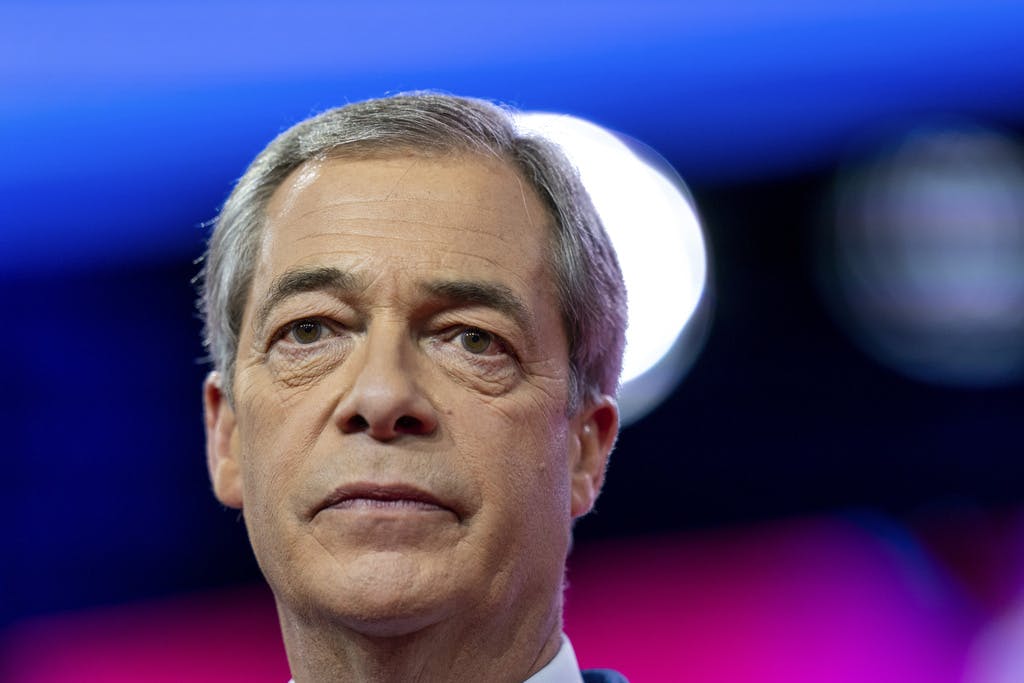‘De-Banking’ of Nigel Farage Sheds New Light on Financial Ostracism of Politically Incorrect Public Figures in U.K.
The U.K.’s top banking regulator will meet with banking executives Wednesday to discuss the ongoing furor and concerns that the banks’ actions might be squelching freedom of expression.

A prestigious British bank’s decision to summarily close the accounts of a conservative Brexit champion, Nigel Farage, because it found his political views unpalatable is shedding new light on an opaque trend in European banking circles to “de-bank” what the EU calls “politically exposed persons” and others with unorthodox views.
Mr. Farage took to social media earlier this month to complain that Coutts & Company, a private bank owned by NatWest, closed his decades-old personal accounts there without warning as part of a wider political vendetta. He said the British “establishment” was trying to hound him out of the country because of his conservative political views.
“Without a bank account, you effectively become a non-person. You don’t actually exist,” Mr. Farage said in a six-minute video posted on social media. “It’s like the worst regimes of the mid-20th century, be they in Russia or Germany. You literally become a non-person.”
Officials at NatWest attempted to refute the allegations by telling the BBC that Mr. Farage was let go as a client because he fell below the wealth limits that the bank requires in order to maintain accounts. Mr. Farage subsequently produced a 40-page document from Coutts refuting that claim and admitting that it had dumped him because of his politics.
The internal Coutts document expressed concerns that Mr. Farage is “xenophobic and racist” and questioned whether the bank’s continued relationship with him would harm its reputation. The document said the relationship was not consistent with Coutts’s “position as an inclusive organization” given his “publicly stated views.”
Coutts bank, founded in 1692 and one of the oldest banks in the world, is a private bank based at London preferred by Britain’s nobility. It is often referred to as “the Queen’s bank” because the royal family has been a client since George IV reigned. It is considered one of the most exclusive banks in the world because being accepted as a client requires a significant net worth and liquid assets.
On Tuesday, the chief executive of NatWest, Alison Rose, apologized to Mr. Farage and said she was wrong to respond to questions about why his accounts were closed. The BBC apologized on Monday for reporting the incorrect information sourced to Ms. Rose about Mr. Farage.
“I was wrong to respond to any question raised by the BBC about this case, I want to extend my sincere apologies to Mr Farage for the personal hurt this has caused him and I have written to him today,” Ms. Rose said.
The U.K.’s top banking regulator, City Minister Andrew Griffith, has scheduled a meeting with the chief executives of 19 of Britain’s largest banks Wednesday to discuss the ongoing furor and concerns that the banks’ actions might be curbing freedom of expression in the country.
“People should be able to exercise lawful freedom of expression without the fear of having their bank accounts closed,” Mr. Griffith said on Twitter. “Yesterday I wrote to some of the UK’s biggest banks to express that this is a fundamental right and we will take the action necessary to protect it.”
Since the debate erupted, other people and organizations have come forward with stories about their own experience being “de-banked.” Mr. Farage blames EU and UK banking rules that force banks to scrutinize the accounts of “politically exposed persons,” or those in the public limelight, more closely than others. Politicians labeled politically exposed persons are subject to tighter controls.
One of the groups that have come forward, Dutch feminists who have spoken out against proposed new transgender legislation in that country, had its accounts closed after transgender rights activists accused them of being “trans-exclusionary radical feminists,” according to Dutch press reports.
According to London’s Daily Telegraph, at least three other banks in the United Kingdom are being investigated for closing accounts for political reasons. One of those banks, the Yorkshire Building Society, allegedly closed the account of a local pastor days after he wrote to the bank complaining about its messaging for Pride Month.

